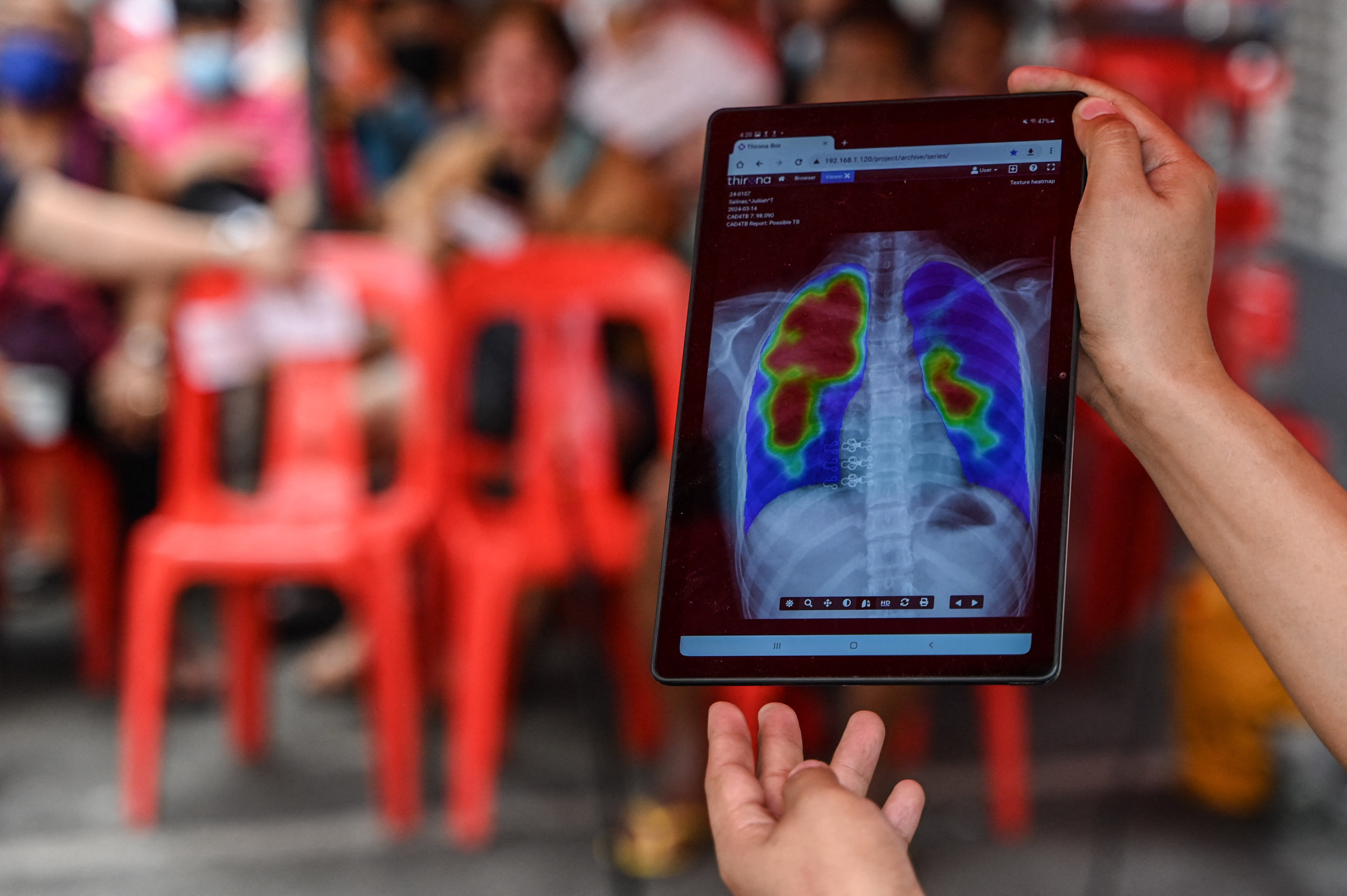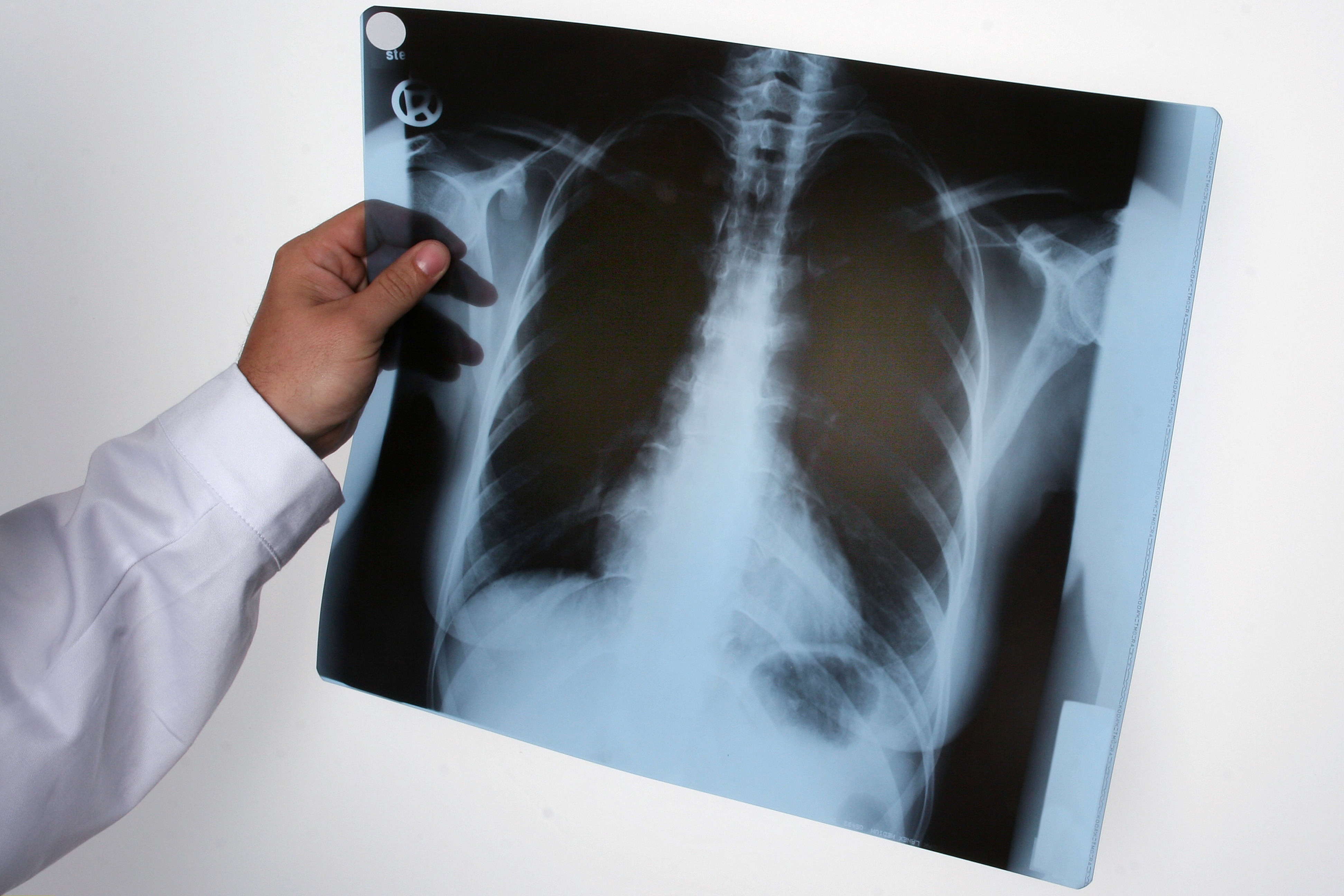When you hear the word "tuberculosis," it might sound like something from the past, but let me tell you, it's very much alive today. Kansas, my friends, is currently facing a serious outbreak of tuberculosis, and this is not just a local issue—it's a global health concern waiting to happen. So, buckle up, because we're diving deep into the facts, the fears, and the fight against this disease.
Imagine a disease that silently spreads, affecting people of all ages, and often going undetected until it’s too late. That's exactly what's happening in Kansas right now. The outbreak has caught the attention of health authorities, and for good reason. It's not just a medical problem; it's a social and economic issue that could impact everyone, regardless of where you live.
So, why should you care? Because understanding the Kansas tuberculosis outbreak isn't just about staying informed—it's about protecting yourself, your family, and your community. In this article, we'll break down everything you need to know about the outbreak, the risks, and what's being done to stop it. Let's get started, shall we?
What Exactly is Tuberculosis?
Tuberculosis, or TB as it's commonly known, is an infectious disease that primarily affects the lungs. But here's the kicker—it can attack almost any part of your body. Caused by the bacterium Mycobacterium tuberculosis, TB spreads through the air when an infected person coughs, sneezes, or even talks. Sounds scary, right? Well, it is, especially when you consider how easily it can spread in crowded places like schools, workplaces, and public transportation.
Key Facts About Tuberculosis
- TB is one of the top 10 causes of death worldwide.
- It's curable and preventable, yet millions of cases are reported each year.
- In 2022 alone, around 10 million people fell ill with TB globally.
Now, let's zoom in on Kansas. The state has seen a significant uptick in TB cases, with numbers that are alarming health officials. But what’s causing this sudden surge? Let's find out.
Understanding the Kansas Tuberculosis Outbreak
Let's cut to the chase: Kansas is currently grappling with a tuberculosis outbreak that's raising eyebrows across the country. The numbers might seem small compared to global statistics, but the implications are massive. The Centers for Disease Control and Prevention (CDC) has flagged Kansas as a hotspot for TB cases, and they're urging immediate action.
- Natasha Rothwell The Rising Star Who Stole Hearts With Her Unique Talent
- Kpop Boy Groups The Ultimate Guide To Your Favorite Kpop Sensations
Causes of the Outbreak
Several factors contribute to the Kansas tuberculosis outbreak. First, there's the issue of underdiagnosis. Many people with TB symptoms don't seek medical help until the disease has progressed. Second, the state's healthcare infrastructure is stretched thin, making it harder to detect and treat cases early. And finally, social determinants like poverty, overcrowding, and lack of access to healthcare play a significant role in the spread of TB.
Symptoms of Tuberculosis: What to Watch For
Recognizing the symptoms of tuberculosis is crucial for early detection and treatment. Here's what you need to look out for:
- Persistent cough lasting more than three weeks
- Coughing up blood or phlegm
- Unexplained weight loss
- Fever and night sweats
- Loss of appetite
If you or someone you know is experiencing these symptoms, don't wait—seek medical attention immediately. Early diagnosis and treatment can make all the difference in stopping the spread of TB.
Risk Factors for Tuberculosis
Not everyone is equally at risk for contracting tuberculosis. Certain groups are more vulnerable due to various factors. Here are some of the key risk factors:
1. Weakened Immune System
People with weakened immune systems, such as those with HIV/AIDS or undergoing chemotherapy, are at higher risk of developing TB. Their bodies have a harder time fighting off the infection, making them more susceptible to the disease.
2. Close Contact with Infected Individuals
If you live or work closely with someone who has active TB, your chances of getting infected increase significantly. That's why it's crucial to practice good hygiene and ventilation in shared spaces.
3. Poor Living Conditions
Overcrowded and poorly ventilated living conditions are a breeding ground for TB. This is particularly concerning in areas with high poverty rates, where access to proper healthcare is limited.
Diagnosis and Treatment of Tuberculosis
Diagnosing tuberculosis involves a series of tests, including skin tests, blood tests, and chest X-rays. Once diagnosed, TB is treated with a combination of antibiotics, usually taken over a period of six to nine months. It's important to complete the full course of treatment, even if symptoms improve, to ensure the bacteria are completely eradicated.
Challenges in TB Treatment
One of the biggest challenges in treating tuberculosis is drug-resistant strains. When TB bacteria become resistant to the usual antibiotics, treatment becomes more complicated and expensive. This is why prevention and early detection are so critical.
Preventing the Spread of Tuberculosis
Prevention is key in stopping the spread of tuberculosis. Here are some effective strategies:
- Vaccination: The BCG vaccine can help protect against severe forms of TB, especially in children.
- Good Hygiene: Regular handwashing and covering your mouth when coughing or sneezing can reduce the risk of transmission.
- Proper Ventilation: Ensuring good airflow in indoor spaces can minimize the spread of TB bacteria.
- Screening and Testing: Regular screening for high-risk groups can lead to early detection and treatment.
By implementing these preventive measures, we can significantly reduce the incidence of TB in Kansas and beyond.
The Role of Healthcare Providers in Combating TB
Healthcare providers play a vital role in managing and preventing tuberculosis outbreaks. They are on the front lines, diagnosing cases, administering treatment, and educating the public about TB. In Kansas, healthcare workers are working tirelessly to contain the outbreak, but they need support from the community to succeed.
Community Engagement
Community involvement is crucial in fighting tuberculosis. Public awareness campaigns, educational programs, and support for healthcare initiatives can make a huge difference. By coming together, we can create a safer, healthier environment for everyone.
Global Efforts to Combat Tuberculosis
Tuberculosis is a global health issue, and international organizations like the World Health Organization (WHO) are leading the charge in combating it. The WHO's End TB Strategy aims to reduce TB deaths by 90% and cut new cases by 80% by 2030. This ambitious goal requires collaboration and commitment from countries around the world, including the United States.
Research and Development
Investment in research and development is essential for finding new ways to diagnose, treat, and prevent TB. Advances in technology and medicine offer hope for a future free from tuberculosis, but continued funding and support are necessary to make this vision a reality.
Impact of the Kansas Tuberculosis Outbreak
The Kansas tuberculosis outbreak has far-reaching consequences, affecting not only the health of individuals but also the economy and social fabric of the state. The cost of treating TB cases, lost productivity due to illness, and the strain on healthcare resources are all significant burdens. Addressing these challenges requires a comprehensive approach that addresses both the immediate and long-term impacts of the outbreak.
Economic Implications
From a financial perspective, the outbreak is costly. Treating TB is expensive, and the economic burden falls on both individuals and the healthcare system. This highlights the importance of prevention and early intervention in reducing the overall cost of managing TB.
Call to Action: What You Can Do
Now that you know the facts about the Kansas tuberculosis outbreak, it's time to take action. Here's what you can do to help:
- Stay informed about TB and its symptoms.
- Support local health initiatives and awareness campaigns.
- Encourage friends and family to get tested if they're at risk.
- Advocate for better healthcare policies and funding.
Together, we can make a difference in the fight against tuberculosis. Your involvement matters, and every small action contributes to the greater good.
Conclusion: The Road Ahead
The Kansas tuberculosis outbreak is a wake-up call for all of us. It reminds us that diseases like TB are still a threat, even in developed countries. By understanding the causes, recognizing the symptoms, and taking preventive measures, we can work towards a future where TB is a thing of the past.
I urge you to share this article with your friends and family. The more people know about the outbreak, the better equipped we are to tackle it. Let's stand united in the fight against tuberculosis and ensure a healthier future for everyone.
Table of Contents
- What Exactly is Tuberculosis?
- Understanding the Kansas Tuberculosis Outbreak
- Symptoms of Tuberculosis: What to Watch For
- Risk Factors for Tuberculosis
- Diagnosis and Treatment of Tuberculosis
- Preventing the Spread of Tuberculosis
- The Role of Healthcare Providers in Combating TB
- Global Efforts to Combat Tuberculosis
- Impact of the Kansas Tuberculosis Outbreak
- Call to Action: What You Can Do
- Allegra Versace Beck The Glamorous World Of The Versace Heiress
- Unveiling The Secrets Of The Sep 20th Zodiac Sign Libras Hidden Powers


